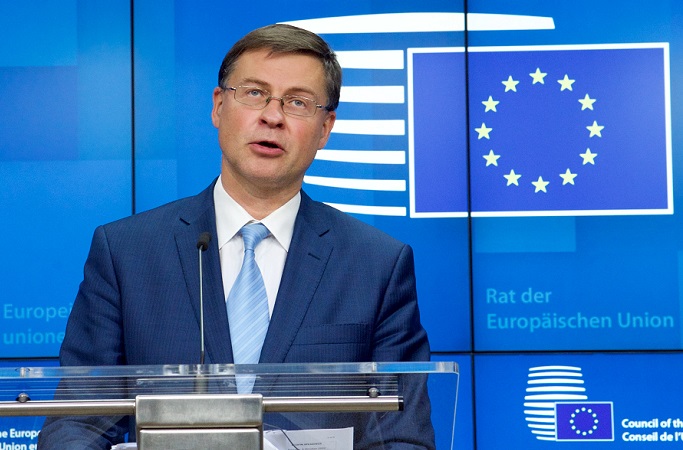EC unveils employment support plan
Published : 04 Mar 2021, 23:32
The creation of employment opportunities, the upskilling of the workforce and supporting at least 15 million people at risk of poverty are at the heart of a three-pronged plan for a "more social Europe" unveiled by the European Commission here on Thursday, reported Xinhua.
The targets are part of a plan that focuses on jobs and skills for the future and paves the way for a fair, inclusive and resilient socio-economic recovery, the Commission said in a statement.
The action plan sets three headline targets for the European Union (EU) to be achieved by 2030: at least 78 percent of people aged 20 to 64 should be in employment; at least 60 percent of all adults should participate in training every year; and the number of people at risk of poverty or social exclusion should be reduced by at least 15 million.
The plan aims to further implement the principles of the European Pillar of Social Rights as a joint effort by the members states and the EU, with the active involvement of social partners and civil society, the Commission said.
"Our economic recovery must be inclusive, fair and job-rich. With this [plan], we want to signal the importance of a gradual transition from emergency to recovery policies for our labor markets, which the EU will support through its available funding sources," said the Commission's Executive Vice-President for an Economy that Works for People, Valdis Dombrovskis.
"As we gradually start to move out of the health crisis in the coming months, it is essential to give a very strong political signal to all Europeans that the EU is concerned for their livelihoods, their jobs and their well-being. We need a longer term, concrete and comprehensive approach on how we want to shape social policies in a context of deep economic, technological and demographic transformations," European Commissioner for Jobs and Social Rights Nicolas Schmit added.
As one of the concrete actions, the Commission made a recommendation on Thursday on an initiative called EASE (Effective Active Support to Employment) for the post-COVID-19 crisis period.
Through EASE, the Commission will offer guidance to member states on policy measures to gradually transition from the emergency measures taken to preserve jobs in the current crisis to new measures needed for a job-rich recovery backed by EU funding possibilities, according to the statement.
The EASE initiative will promote job creation and job-to-job transitions from declining sectors towards expanding sectors, notably the digital and green ones, the Commission said. New measures would include hiring incentives and entrepreneurial support, upskilling and reskilling opportunities and enhanced support by employment services.


